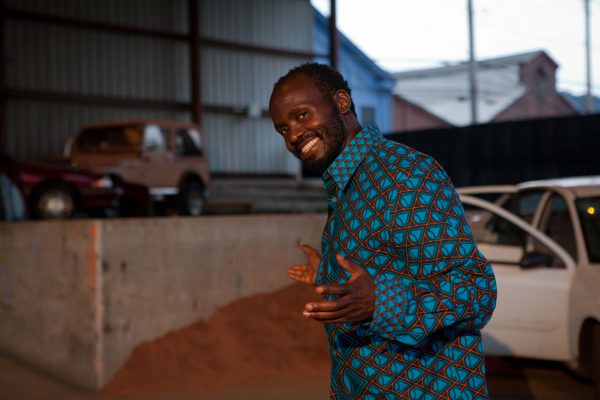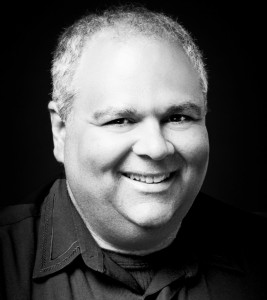By Mike “Buzz” Buzzelli, ‘Burgh Vivant
High in the Mirama Hills between Uganda and Rwanda, a young American, David (Scott Parkinson) encounters God’s Blessing (Patrick J. Ssenjovu) and their lives are forever changed in play “Red Hills” by Sean Christopher Lewis.
Years pass, but neither David nor God’s Blessing can put the life-altering events of their chance meeting behind them. David writes a book about his experiences, a tumultuous meeting with the Rwandan boy during the genocide of his people in 1994.
When God’s Blessing wanders into a bookstore, he discovers he is featured in the aforementioned book. He does not agree with the author’s depiction of the dark events and asks David to come to Rwanda to get the bigger picture.
David navigates his way to the African nation, and greets God’s Blessing with luggage in hand. The two men set off on a spiritual journey to discover the other’s perspective.
David recalls his earlier African visit. In 1994, he was a young man who stumbled into missionary work because of a pious and beautiful young woman named Mary (Ava Kepple). On the riverbanks, while washing the collective clothes of the other young missionaries, David and Mary meet God’s Blessing.

The young Rwandan hopped on a bike and hightailed it out of his country in the wake of the genocide. He begs Mary and David to help him find his parents. While David is reluctant, Mary charges into action. The three set out to reunite God’s Blessing with his family.
In the present, David and God’s Blessing reveal tragic secrets to one another. Each suffering in their own ways.
The story toggles between their diametrically opposed points of view.
A few audience members are singled out and fill in as extras (on opening night, Bruce Crocker filled in as a cab driver, and Ed Scheid played a Hutu, both in silent roles). The entire audience participated in several call-and-response moments.
The play hinges on the talents of its two main characters. Ssenjovu is charismatic and charming as the Rwandan. God’s Blessing is a happy-go-lucky tour guide on the surface, but a cauldron of boiling rage underneath. He’s ready to bubble over on David for his misrepresentation of the facts. He is more than a victim of the Tutsi massacre. His performance is visceral, enchanting.
Parkinson does a fine job as well. He vacillates between the two versions of the character; the frightened young missionary and the angry professor who studies, of all things, forgiveness. The final scene is heart-wrenching. It’s another skillful performance.
Kepple’s ephemeral Mary is dichotomous. She is sweet and brash. She is equal parts devout Christian and blossoming young woman. Her appearance in the play is handled in a unique way. It’s safe to say her performance throughout the run will be unwavering. No spoilers, sweetie.
Lewis has written a powerful work on love, hate and forgiveness, deftly directed by Katie Pearl.
As in all Quantum Theatre shows (in collaboration with En Garde Arts, New York), it’s an immersive theatrical experience in an unusual space. “Red Hills” is performed in a scrapyard, the Recycling Building in the Strip, red clay and rusted vehicles define the space. High marks for Deb O who handled scenic and costume design on the production.
Todd Brown’s lighting design and Steve Shapiro’s sound design add depth and resonance to the performances. Additional material is supplied by Joe Seamans and his media design which excellently creates character, mood and environment.
American author and humorist Mark Twain (Samuel Clemmons) once said, “Forgiveness is the fragrance that the violet sheds on the heel that has crushed it.” The beautiful scent of “Red Hills” rises up from two shattered souls. While we revel in the exquisite aroma, we never forget where it comes from.
“Red Hills” reveals deep truths about love, hate and forgiveness. It’s also a glorious work of art.
You can see “Red Hills” on the corner of 32nd Street and Smallman in Pittsburgh, PA. For more information, click here.


